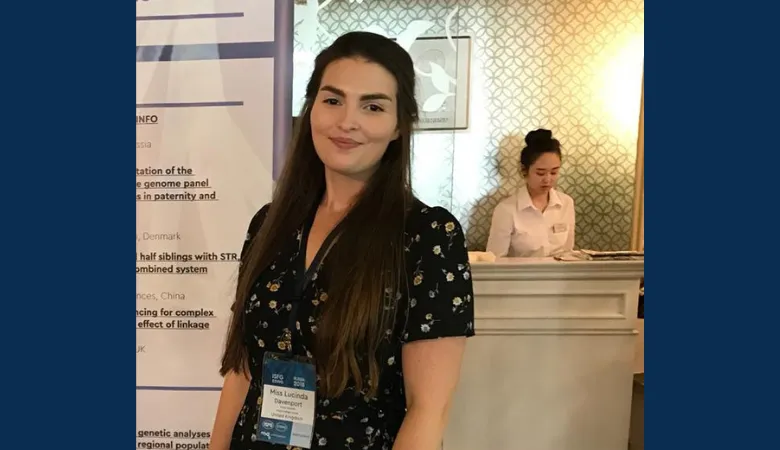Massively parallel sequencing has shown great promise in many areas of forensic DNA analysis; however, it is a very expensive technique. Therefore, I am hugely grateful for the opportunity to use the funds from this scholarship to further this research and improve the way we solve complex relationship cases.’
Lucinda Davenport
08 May 2019
King's researcher awarded scholarship to study the use of new technique in relationship analysis
Lucinda Davenport has been awarded the 2019 research scholarship from the Chartered Society of Forensic Sciences (CSFS).

Lucinda from the Department of Analytical, Environmental Forensic Sciences, has been awarded funding to undertake research into the use of DNA sequencing technology to determine genetic relationships between individuals, otherwise known as kinship analysis.
At present, methods are largely successful at determining simple genetic relationships such as those involved in paternity cases. However, Lucinda is investigating the use of a technique known as Massively Parallel Sequencing (MPS), to see if it can improve the ability to resolve more complex relationship cases, such as first cousins.
Understanding how individuals may be genetically related is important in a range of circumstances such as immigration cases and disaster victim identification and often these scenarios will involve more distant or complex relationships. MPS enables a much larger number and increased the variety of genetic markers to be targeted simultaneously in comparison to current methods, as well as providing DNA sequence information that has not been previously available.

From this work, Lucinda and her team at King’s Forensics hope to show that the increase in genetic information obtained when using MPS can be highly beneficial for relationship testing and can help to better resolve these more complex cases.
CSFS is the professional body for forensic practice in the UK and is also responsible for the accreditation of Forensic Science related courses including Forensic Science MSc here at King's.
